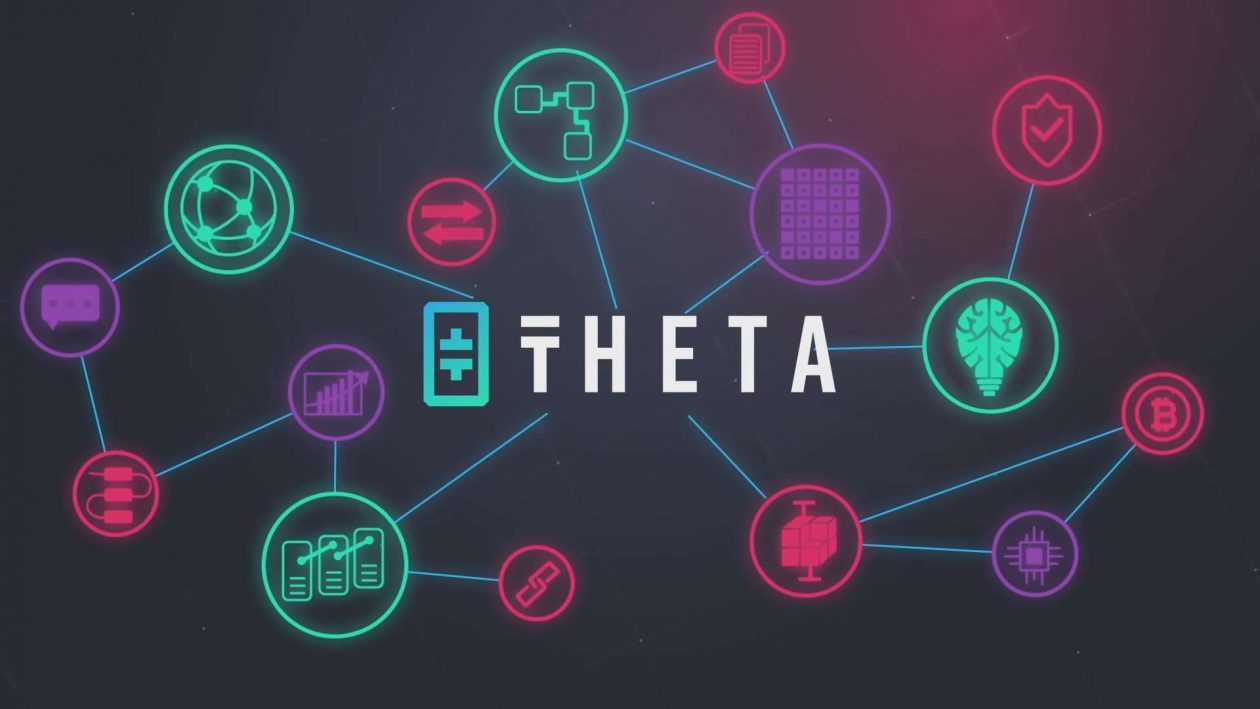The live streaming industry is one of the fastest-expanding parts of the internet, estimated to have grown from a value of US$30.3 billion in 2016 to US$70 billion by the end of this year.
Online audiences are consuming ever-increasing amounts of video content, both live and pre-recorded, via YouTube, Vimeo, Netflix, and a number of other platforms.
The next frontier in online streaming may be blockchain-powered video delivery platforms. One of them, Theta Network — whose governance token THETA is currently the 18th most popular cryptocurrency in the world by market cap — will launch its mainnet 3.0 today.
What is the Theta project, and what might its future hold? This Forkast.News explainer will explore:
- What is Theta blockchain?
- Theta’s beginnings
- How Theta works
- How Theta’s two native tokens work: THETA and TFUEL
- The thinking behind Theta
- Theta’s mainnet launch and why it matters
- What the future holds
What is Theta?
Theta is a native blockchain with an open-source protocol, meaning that it allows developers and partners to build decentralized applications on the network, as Ethereum does.
It is a decentralized, peer-to-peer video delivery network powered by blockchain technology that enables free, high-bandwidth content delivery. As users watch videos, part of their computing power is harnessed to relay those videos to other users, with the primary users earning tokens as a reward.
The Theta Network aims to become the next generation of entertainment technology by providing decentralized video streaming infrastructure that is cheaper than competing centralized platforms. The peer-to-peer video delivery platform is powered by its users and offers multiple content types, including e-sports, movies, TV series and music.
Theta’s beginnings
Theta was founded in 2017 by Mitch Liu, a serial entrepreneur who previously co-founded mobile gaming and online advertising startups, and Jieyi Long, an expert on the technologies for virtual reality live streaming.
In 2017, the team behind Theta hosted a private token sale, selling 30% of the capped 1 billion unit supply of THETA to raise the equivalent of $20 million to kickstart their project.
Theta Labs, the company behind the Theta Network, also has its own streaming site, Theta.tv. The site pays viewers in TFUEL to watch video content, which, as they watch, is “forwarded” to other viewers using some of the primary users’ processing capacity.
The Theta Network’s advisory board includes Twitch co-founder Justin Kana, YouTube co-founder Steve Chen and a number of Verizon senior executives.
How Theta works
Theta’s blockchain network is based on a peer-to-peer (P2P) protocol that enables participants to be rewarded with real-time payments for content distribution. The network also allows developers to build DApps on its open-source blockchain protocol.
Theta utilizes a proof-of-stake consensus mechanism similar to Tendermint’s blockchain protocol, which is based on staking. That means participants lock in large amounts of THETA tokens to gain the right to process transaction blocks.
Theta’s blockchain network is powered by three categories of participants:
Enterprise validator nodes
These are companies that stake THETA tokens to process transactions on the network. Some of the network’s best-known validator nodes include Sony, talent shop Creative Artists Agency, Google, and Samsung. Validator nodes are the network’s first line of defense and require participants to stake 1 million THETA coins.
Guardian nodes
Guardian nodes are community nodes in charge of maintaining consensus by securing validation at predefined points. They are users that ensure the transaction blocks created by enterprise validator nodes perform accurately, adding a second layer of security to the protocol. If a malicious block slips through a validator node, a guardian node will stop it. Guardian nodes only need to stake 1,000 THETA coins.
Edge Nodes
Edge nodes allow users to relay video streams and share their bandwidth for streams on Theta.tv. They are rewarded with TFUEL for supporting the network. The Theta Network allows users to stream peer to peer without the need for a centralized content delivery network.
How Theta’s two native tokens work: THETA and TFUEL
One of the features that make Theta stand out is that it has two native tokens: TFUEL, at press time trading at US$0.43 per coin and with a market cap of $2.3 billion; and THETA, trading at $7.20, with a $7.2 billion market cap.
Theta Network participants who help share video content as edge nodes are rewarded for the data they stream with TFUEL. The platform itself pays for the content distribution, meaning that the service is free for end-users.
Edge nodes don’t usually stream full videos, but rather small increments of them, so end users actually watch content streamed from multiple community nodes. Much like BitTorrent, if torrent users were paid for seeding content and contributing to other parties’ download speeds.
Theta network’s second native cryptocurrency, THETA, is a governance token designed to help manage the blockchain and its future development. THETA has a fixed supply of 1 billion coins, avoiding the risk of inflation.
THETA coins can be staked to receive TFUEL as a reward, but a user needs at least 1,000 tokens to become an eligible guardian node, and 1 million tokens to become an enterprise-level validator.
The thinking behind Theta
Theta seeks to change the future of video delivery platforms with the help of blockchain technology and its network of validators. The software is built to encourage its global network of users to create and support a fully decentralized video streaming platform.
Despite immense technological advances, video streaming quality and loading times aren’t on par with viewers’ typically high expectations. This is because video streaming platforms and content distribution networks are limited by their server locations. Ordinary content distribution networks are paid to deliver video content to end-users, but centralized servers simply can’t keep up with the ever-increasing demand for streaming quality.
Theta aims to bridge the big gaps between streaming quality and speed by enabling its global user network to relay videos by using its computing power and spare bandwidth. The more users are active on the network, the more bandwidth will be available for video streaming, increasing streaming speed and quality with each new node.
Theta enables content creators to exercise greater control over their content and its monetization, which will likely help the network’s popularity. Investors convinced that the future of shared video streaming platforms is built on blockchain technology are also supporting Theta.
Theta’s mainnet launch and why it matters
Theta’s mainnet 3.0 update, which introduces TFUEL staking and Uptime mining, is set to launch today, according to a Medium blog post by Theta Labs. It’s one of the Theta Network’s most anticipated protocol updates.
After the update, Theta’s edge nodes will start burning a minimum of 25% of each TFUEL payment made to the network, meaning that those coins will be completely taken out of circulation. Smart contract fees and network transaction fees will also be burned to combat the prospect of TFUEL inflation and add scarcity to the token.
The 3.0 mainnet launch will also moderately increase gas fees for the Theta protocol, as the network aims to align value with transaction volume on its blockchain.
“Currently, the fees on Theta network are near zero, and after the proposed increase would still be sufficiently low and cost-effective for smart contracts and dApps with transaction fees of 0.3 TFUEL for send transactions, 20 TFUEL to deploy a smart contract, and 1 TFUEL to interact with a smart contract,” Theta Labs wrote in its Medium post.
The Theta Network’s current and proposed post-upgrade fees
As the protocol is quickly becoming fully decentralized, increased gas fees will beef up its security, especially against spam attacks using small transactions to flood the network and stop block creation altogether. Theta hopes the gas fee increase will prevent such attacks by making them too costly to launch.
Mainnet 3.0 will also introduce TFUEL staking and a temporary TFUEL sink, in addition to the network and transaction fee permanent sink, which will contribute to the token’s long-term deflationary model.
“We anticipate a deflationary model as more TFUEL is burned and permanently taken out of circulation,” wrote Theta Labs in a Medium blog post. Ultimately, this will lead to the most optimized and balanced state where TFUEL utility value is maximized and stable.”
What the future holds
Theta is a blockchain project in the video streaming industry, which is projected to grow at a compound annual growth rate of more than 18% from 2020-24, with more long-term growth as technologies such as blockchain and virtual reality advance further.
Theta aims to reduce the streaming-related costs of content distribution networks and make distribution more seamless, potentially serving industry giants such as YouTube, Twitch, and Netflix, and injecting momentum into the growth of fully decentralized content delivery platforms.
Theta’s 3.0 mainnet launch also furthers expansion plans for the ThetaDrop NFT marketplace, which may help Theta gain market share in that booming industry.
“With our planned growth for the ThetaDrop NFT marketplace, licensing of our platform to third-parties and other expansion plans, we forecast that NFT interactions with Theta smart contracts alone will reach 600,000 transactions per day, at which point nearly 250M TFUEL will be burned per year, canceling out the majority of annual TFUEL inflation.” Theta Labs wrote in a Medium blog post.
After the update, Elite Edge Nodes will become decentralized storage spaces for NFTs, as Theta is establishing cross-chain bridges between its own network, Ethereum, and other decentralized networks. This can potentially solve the high costs associated with NFT minting on the Ethereum network.
Mainnet 3.0 intends to lead to a more secure, scalable and future-proof blockchain protocol that may enable other initiatives in the industry. With its corporate backers, and with strategic partnerships with Samsung VR and Twitch in the pipeline, will the Theta Network disrupt the video streaming industry with its blockchain protocol?
Time will tell. THETA and TFUEL prices rose by 10.4% and 40.7% respectively over the last 30 days, and 2.4% and -0.4% respectively in the last 24 hours as of publishing time.





